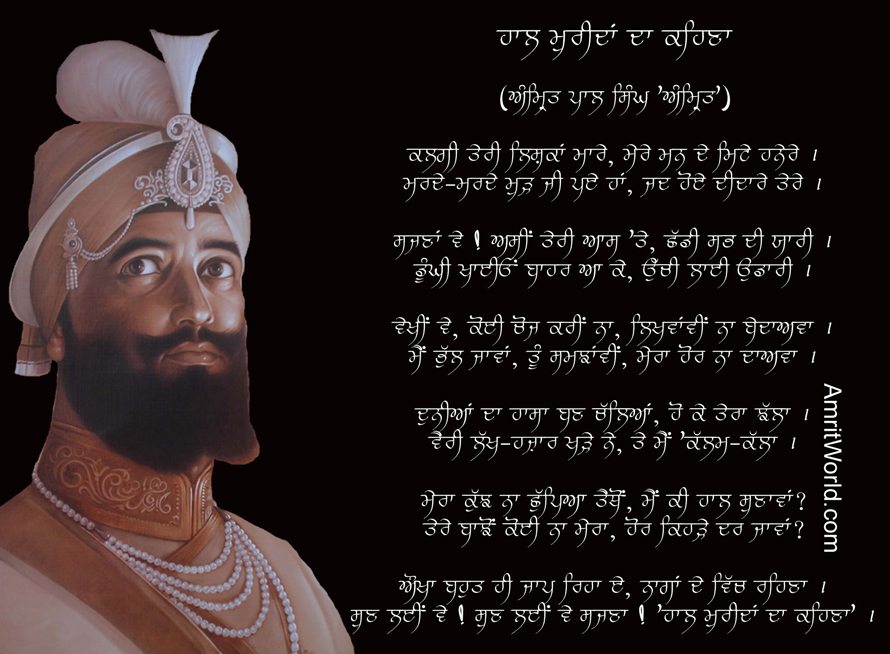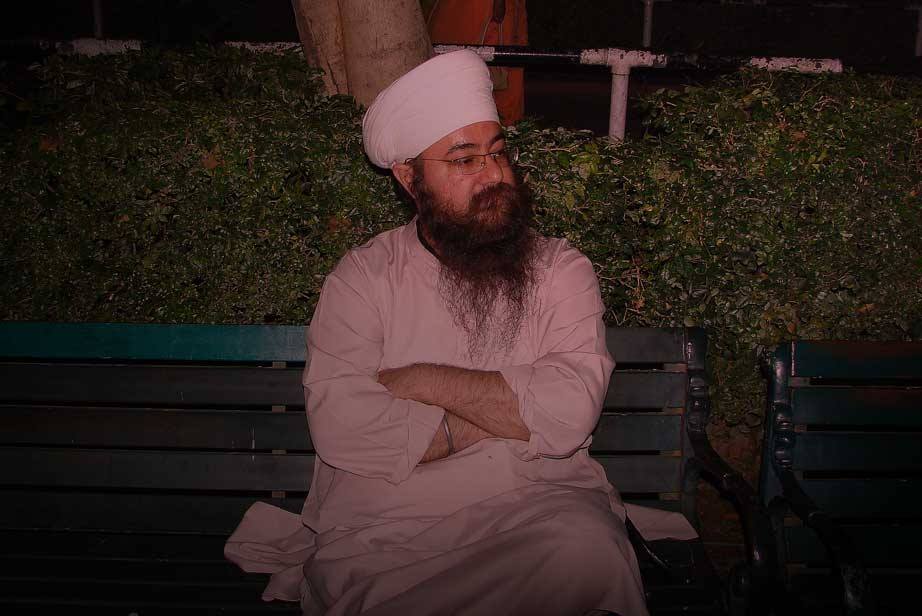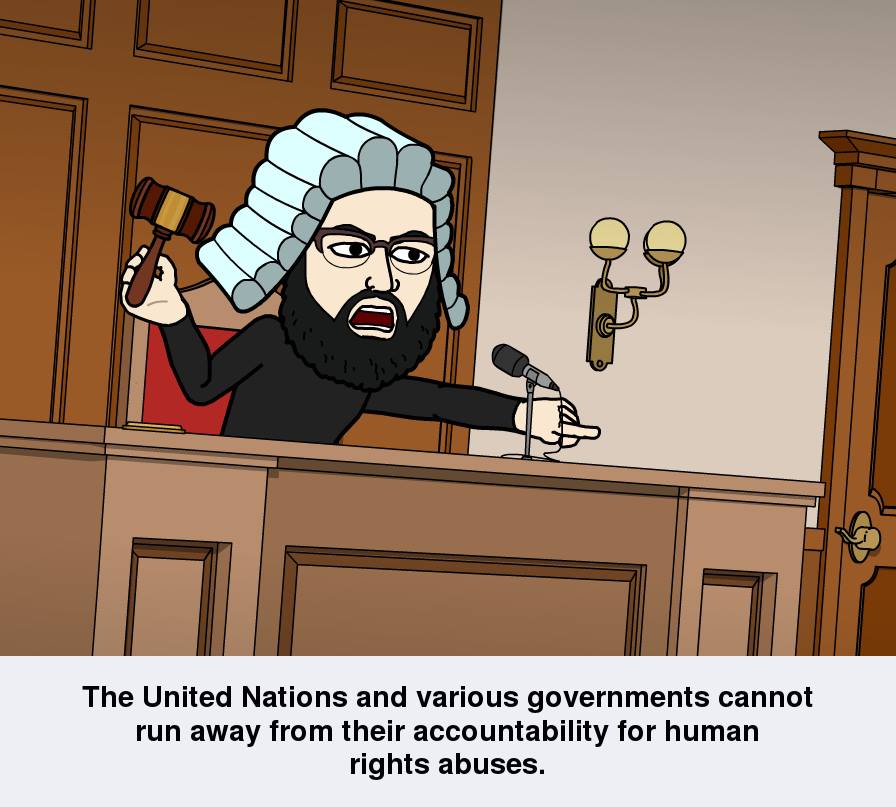(अमृत पाल सिंघ ‘अमृत’)
जिसके मन में पाप ही भरा-पड़ा हो, ऐसे सम्बन्धी से नज़दीकी बढ़ा कर क्या पाओगे? नीच आदमी से दोस्ती करोगे, तो क्या मिलेगा? नीच पुरुष को सम्मान दोगे, तो क्या मिलेगा? ओछी सोच रखने वाले को अपने पास जगह दोगे, तो क्या मिलेगा?
कभी सोचना, युधिष्ठिर को क्या मिला दुर्योधन को सम्मान दे कर।
पाण्डु की जब मौत हुई, पाण्डव तब शतशृंग पर्वत पर रहते थे। पाण्डु की मौत के बाद वे कुन्ती के साथ अपने रिश्तेदारों के यहाँ आ पहुँचे। धृतराष्ट्र बड़ा भाई था पाण्डु का। इस तरह धृतराष्ट्र पांडवों का ताऊ लगता था। दुर्योधन और उसके अन्य भाई इसी धृतराष्ट्र के बेटे थे। ये सभी पांडवों के रिश्तेदार ही तो हुये।
महाभारत ग्रन्थ पढ़ो, तो पता चलता है कि दुर्योधन के मन में खोट भरा पड़ा था। पांडवों के प्रति उसके मन में ख़ास दुश्मनी थी।
कभी पाण्डु राजा था। अब धृतराष्ट्र राजा हो चुका था। पाण्डु के पुत्र होने की वजह से पांडवों का हक़ बनता था हुकूमत पर। अब कोई पापी हो, तो किसी दूसरे को उसका जायज़ हिस्सा भी कैसे दे देगा? जायज़ हिस्सा दे ही दे, तो फिर पापी ही न रहा वह। दुर्योधन पापी था। उसने पांडवों को राज्य देने का विरोध किया। पुत्र-मोह के आगे धृतराष्ट्र बे-बस हो गया। मोह ने उसके ज्ञान के नेत्र भी बन्द कर दिये थे।
पापी हमेशा साज़िशें रचता है निर्दोषों के खिलाफ़। दुर्योधन ने भी साजिशें रचीं पांडवों के खिलाफ़। लाख (लाक्ष) के बने घर में घर समेत पांडवों को उनकी माता के साथ मारने की साज़िश रच डाली।
पांडव मरे नहीं वहाँ। अब मरना-मारना तो प्रभु के हाथ है, इंसान के हाथ नहीं। पांडव बच निकले। लेकिन, दुर्योधन ख़ुश था इसी ग़लतफ़हमी में कि पाण्डव अपनी माता सहित जल मरे।
बहुत समय बीत गया। द्रौपदी के स्वंयबर का मौक़ा आया। दुर्योधन भी पहुँचा। पाण्डव भी पहुँचे। और पहुँचे श्री कृष्ण भी।
स्वंयबर में अर्जुन ने द्रौपदी को जीता।
पापी को उसके पाप ही डराते रहते हैं। अब दुर्योधन और धृतराष्ट्र को डर सताने लगा। पाण्डव ज़िन्दा हैं। और अब अकेले भी नहीं। पांचाल नरेश का साथ है । अब तो कृष्ण का भी साथ है।
राज्य का बँटवारा हो, ऐसा फ़ैसला कर दिया गया। आधा राज्य पाँडवों को दे दिया गया।
अलगाववाद कभी पक्का हल नहीं होता। मिल कर रहना ही सही होता है। अलग हो भी जाओ, तो इस से क्या दुश्मनी ख़त्म हो जायेगी? नफ़रत दिल में भरी पड़ी हो, तो अलग-अलग हो कर दुश्मनी जारी रहती है।
पांडवों ने अपने राज्य का विस्तार किया। अब खुशियाँ मनाने का वक़्त था। सब को इन खुशियों में शामिल होने के लिये बुलाया। दुर्योधन आदि को भी बुलावा भेज दिया।
वे आये। पांडवों ने उन को बहुत इज़्ज़त दी।
जो इज़्ज़त के लायक नहीं, उसको इज़्ज़त देने से कई बार ख़ुद बे-इज़्ज़त होना पड़ जाता है। जिस की ख़ुद की कोई इज़्ज़त नहीं, वह दूसरों को बे-इज़्ज़त करने में ही ख़ुशी महसूस करता है। पांडवों के बे-इज़्ज़त होने का वक़्त नजदीक आ रहा था।
दुष्ट व्यक्ति दूसरे के शोभा और इज़्ज़त बर्दाश्त नहीं कर सकता। दुर्योधन से भी पांडवों की शोभा और शान-ओ-शौकत बर्दाश्त कहाँ होती?
जब वह वापिस अपने नगर गया, तो पांडवों से राज्य छीन लेने की तरक़ीब सोचने लगा। दुष्ट कायर होता है। ओछे हथकंडे ही अपनाता है। दुर्योधन ने अपने दुष्ट साथियों के मशवरे के अनुसार युधिष्ठिर जो जुआ खेलने के लिये बुलाया।
सब जानते ही हैं कि क्या हुआ। दुष्ट और कपटी व्यक्ति जुआ भी तो कपट से ही खेलेगा। जुआ खेला गया। शकुनि ने दुर्योधन की तरफ़ से दांव फ़ेंके। कपट में माहिर था शकुनि। नतीजा यह हुया कि युधिष्ठिर जुआ हार गया।
महाभारत ग्रन्थ बहुत विस्तार से बताता है कि फिर क्या हुया…
युधिष्ठिर ने अपनी पत्नि द्रौपदी को भी जुए में दांव पर लगा डाला। और हार भी गया।
मर्दों की उस विशाल सभा में द्रौपदी के साथ जो हुया, उसका ज़िक्र करने की हिम्मत कम-अज़-कम मुझ में तो नहीं है। बस इतना ही कहूँगा कि द्रौपदी को निर्वस्त्र करने की कोशिश हुयी। एक अबला सैंकड़ों मर्दों के सामने अपमानित होती रही। महाभारत ग्रन्थ में कई पन्ने इसी घटना का विवरण देते हैं। इतिहास के वे पन्ने मैं सियाही से नहीं, कभी आंसुओं से लिखूंगा।
दुष्ट नीच से नीच हरकत कर के भी लज्जित नहीं होता। दुर्योधन भी लज्जित नहीं था इस कुकर्म पर। उल्टा वह पांडवों को और अपमानित करने लगा। बेहूदा बातें बोलने लगा।
पाण्डव भीम को क्रोध आया। बहुत क्रोध आया। यहाँ तक कि अपने बड़े भाई युधिष्ठिर के प्रति भी क्रोध किया।
दुर्योधन बोला, तो उसका ही एक साथी कर्ण भी कहाँ पीछे रहता? उसने भी अपमान भरे बोल कहे। भीम से बर्दाश्त नहीं हुआ।
भीम बोलना शुरू ही हुया, कि अर्जुन ने अपने बड़े भाई भीम को रोका।
मैं पांडवों की कहानी नहीं सुनाना चाहता आज। मैं तो बस वह बात सुनाना चाहता हूँ, जो अर्जुन ने उस वक़्त भीम को कही थी। अर्जुन की वह बात मैंने अपने पल्ले बाँध ली। औरों को भी कहता हूँ कि यह बात पल्ले बाँध लो।
दुष्टों द्वारा अपमानित हुये क्रोध से भरे भीम को अर्जुन ने कहा: –
न चैवोक्ता न चानुक्ता हीनत: पुरुषा गिर: ।
भारत प्रतिजल्पन्ति
सदा तूत्तमपुरुषा:॥८॥
(७२वां अध्याय, सभा पर्व, महाभारत)।“भारत ! श्रेष्ठ पुरुष नीच पुरुषों द्वारा कही, या न कही गयी कड़वी बातों का कभी उत्तर नहीं देते ॥८॥”
इसी लिये मैं अक्सर कहता हूँ कि अगर कोई कुत्ता मुझ पर भोंके, तो क्या मुझे भी उस पर भोंकना शुरू कर देना चाहिये? क्या उस पर भोंक कर मुझे भी बदला लेकर यह दिखा देना चाहिये कि देखो, मैं कितना बहादुर हूँ? कुत्ते पर भोंक रहा इन्सान, इन्सान ही कहाँ रहा? वह तो कुत्ता हो गया। दिखने में वह इन्सान ही है, लेकिन काम तो कुत्ते वाला ही है।
नीच लोगों की कही बातों का जवाब देते वक़्त हम भी ग़ुस्से में भर कर कुछ ग़लत बोल सकते हैं। नीच चाहता भी यही है। वह ख़ुद तो नीच है ही, औरों को भी नीच बना देना चाहता है।
क्या किसी नीच की कड़वी बात का जवाब देने के चक्कर में हमें भी नीच बन जाना चाहिये?
अर्जुन ने कहा है, “श्रेष्ठ पुरुष नीच पुरुषों द्वारा कही, या न कही गयी कड़वी बातों का कभी उत्तर नहीं देते।”
आप को भी मैं कहता हूँ कि अर्जुन की यह बात अपने पल्ले बाँध लो।
-०-




